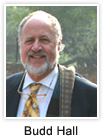 Civil society has led the charge over the last 30 years drawing the world’s attention to the grand challenges, the big issues and the deep crises that we face as humans amongst the other life forms on the planet we call Earth. The United Nations has been a vehicle to amplify these issues and facilitate conversations with member states, the governments of our many nations. The MDGs are a case in point. The post-2015 goals are the next stage in that process. Global events have brought civil society and the state together time and time again on issues of social development, women, racism, education, environment, food security, HIV/AIDS, poverty, mother and child health and much more. Civil society has created its own channels for thinking about matters of global relevance through campaigns such as the Global Education Campaign, the World Social Forum process, the Make Poverty History campaign, the Occupy Wall Street Movement on inequality and the Idle No More movement on Indigenous sovereignty.
Civil society has led the charge over the last 30 years drawing the world’s attention to the grand challenges, the big issues and the deep crises that we face as humans amongst the other life forms on the planet we call Earth. The United Nations has been a vehicle to amplify these issues and facilitate conversations with member states, the governments of our many nations. The MDGs are a case in point. The post-2015 goals are the next stage in that process. Global events have brought civil society and the state together time and time again on issues of social development, women, racism, education, environment, food security, HIV/AIDS, poverty, mother and child health and much more. Civil society has created its own channels for thinking about matters of global relevance through campaigns such as the Global Education Campaign, the World Social Forum process, the Make Poverty History campaign, the Occupy Wall Street Movement on inequality and the Idle No More movement on Indigenous sovereignty.
The global adult education community under the energetic leadership of International Council for Adult Education (ICAE) and its allies has been active and visible in both the joint civil society-UN spaces and the autonomous civil society spaces. The current ‘key messages’ that appear on several of the ICAE sites illustrate the quality of thinking and commitment that goes into being present in these global dialogue processes.
To some of us the absence of acknowledgement of the role that the process of learning plays in achieving traction on the various global commitments is frustrating. The words ‘adult education’, or even its slightly more domesticated cousin ‘lifelong learning’, seldom appear in the lists of priorities for action and investment when the lists are cut down to what is ‘realistic’ from a political perspective.
Similarly, thoughts suggesting that the very model of global economic growth needs to be questioned from both an inclusion and a distribution perspective are, of course, off the table totally. So too is the straight-forward call for the reduction of inequality to be the focal point for future action. It too is seen to be ‘unrealistic’.
But the exercise of articulating and confronting the grand challenges of our times remains nevertheless important as it allows us to think about the role of learning as a contributor to the critical social and ecological issues of our day. It is in that spirit that I raise the visibility of higher education. Higher education was at one time something that very few people were expected to benefit from. But over the past 15 years we have seen a massification of higher education with as many as 2-3 new universities per week being created around the world, most notably in the emerging economies. Higher education must see itself anew with responsibilities for the public good and it must be seen anew as a vast and under-utlilised resource for change.
There is a movement afoot within the higher education world, a community-university engagement movement that is challenging higher education institutions to take up their responsibilities to the critical issues facing the globe and the critical issues in the very physical communities where they are located. Higher education institutions play a critical role in knowledge management, knowledge creation and knowledge dissemination. And they could be playing a much more active role in the co-creation of transformative knowledge for social change and social action. This was, in fact, called for in the May 13-15 Barcelona International Conference on Knowledge, Transformation and Higher Education: Driving Transformative Knowledge for Social Change. The Global University Network for Innovation (GUNi) has the best single website documenting this movement, but there are others such at the Talloires Network and the PASCAL International Observatory.
Higher education institutions are the homes of millions and millions of students, many of whom have been the activists in global campaigns. Hundreds of thousands of academics and knowledge workers abound. They sit on resources and skills and capacities to work with their communities through adult learning and engagement processes to make an impact on the lives of people there. They are part of global knowledge networks that if linked to social movements and civil society organisation would make a big difference.
It is time that the adult education and lifelong learning movement and the community-university engagement movement began to speak to each other. The post-2015 process is a good place to start.




